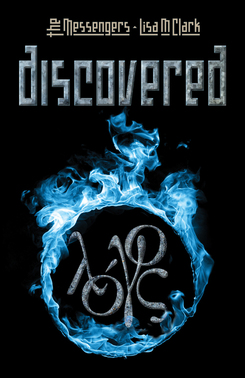 Interview by Brock Eastman Featuring Discovered The Message worth dying for. . . The government tells fifteen-year-old Simon Clay everything he needs to know. Except what really happened to his mom. And why no one can go out at night. And why the Darkness is so dangerous. By day, Simon pushes against every boundary there is. And by night, secret visitors and hidden messages make him question everything his life entails. There’s a truth out there to be discovered, a truth the government will stop at nothing to stamp out. Join Simon and the Messengers as they risk their lives to protect it. ". . . Doled out in small but potent doses, the Message is sweet like honey to all who hear it in this debut thriller that is appropriate for children probably as young as ten. Lisa Clark’s writing is tightly effective, but the heart with which she deals with the theology is light and jubilant. Young readers will love the rebellion against the authorities, while parents will delight in handing their children a book that not only encourages sharing their faith—even in the worst circumstances—but also embraces the importance of family, love, and friendship. [It is] the first of a series, and I have no doubt that Clark’s writing will quickly take this book to the top of the growing YA inspirational genre." —Colleen Oakes, Author of the best-selling Queen of Hearts Saga Brock: How did you come up with the idea for this book or series? or What was your inspiration for writing this book or series? Lisa: I was driving in my car, listening to some instrumental music, and this world began to form in my mind. Little did I know that it was an answer to many thoughts and concerns that were weighing on me as I considered our society, life as a Christian, and especially teenagers who are navigating their lives through eyes of faith. It was as if everything came together in a fictional world to help me better understand my own. For example, as a former high school teacher, I have a great respect for teenagers: how they witness in their world, how they talk with one another. Christians in our society today have lives that are countercultural, and this can be especially difficult for youth with the expectations their peers have for them. Anything I can do to encourage them in their bold witness of simply living out lives as Christians—I’m in. That’s one reason for this book. Brock: Tell us about the main characters? Who are they, what makes them unique. Lisa: In a way, Simon is an unlikely hero, especially for a Christian novel. That’s really the point. God can use us all. Plus, I wanted him to be real—with faults, flaws, and the occasional bout of grouchiness. Jack, Charity, and Ben—these kids could have walked into my high school classroom on any given day. They’re each so different, and I love to watch how they interact with Simon in their own ways. And then there’s Jonathan, Zeke, and Mrs. Meyer. I hope their stories remind us to thank the Jonathans, Zekes, and Mrs. Meyers in our own lives. The Malachis too. Brock: Give us one fact about each main character that no one else knows. Lisa: Secrets are a big deal for the plotline of this book and the one(s) to come. What can I say without big spoilers? Simon’s love life is about to get a little crazy in the next book, Concealed. Brock: In three sentences (or you can choose three words) what is this book about? Lisa: Here are three main points: --There is a Message worth dying for. --As Christians, we are not alone. --Yes, this world is messed up, but the victory is already won. Brock: Do you outline the entire book before starting, or do you write as you go and let the characters take control of the story? Lisa: A balance of both. I know the must-have plot points before I dive in. Then, when I sit down to write each chapter, I tell myself what key action needs to happen by the end of it. But there are so many times I sit back and ask Jack or Charity or Simon, “Now what?” And they guide the way. Brock: How do you believe this story relates to the lives of readers? Lisa: It is my prayer that this story feels incredibly real to my readers: On a small scale, because it walks a path that many believers know. On a larger scale, because the situations could very easily happen anywhere, including our own country. On a huge scale, because this is the narrative of all believers from the beginning of time; we all share this story. Brock: What is your favorite genre to write for? Lisa: For fiction, I love dystopian literature. I believe it is a perfect genre for the Christian message. Dystopian books, in summary, say this: something went wrong in the world. As the plot unfolds, readers figure out the mystery of what when wrong and why it happened. At some point (not always in the first book), a group of people works against the bad to restore the good. One point I want to make in this book is that we live in a dystopian world. Something went wrong; creation is fallen. As we learn more about what happened and why, we also learn about our Savior, who brings restoration now and forever. Brock: What is the biblical background or basis for the series? Lisa: There are a lot of ways to answer this. One narrative throughout the book is the story of a biblical figure. In Simon’s own story, Scripture increasingly informs his life. But I also looked to the history of the Early Church for background—as well as the history of the Church today. Brock: How many books are planned for this series? Lisa: Great question! In some ways, this depends on the readers and what they want to learn. Right now, I’m thinking in a plot arc of a trilogy, but there’s a lot of room to grow as well. Brock: Any certain research required for the book, or is it all from your imagination? Lisa: Yes! See above. This story is informed by hundreds of other stories in history. Brock: How do you strike the right balance in your book? Lisa: That was tricky. Dystopian literature has been around for a long time, not just during the current craze. Because of that, the spectrum is a wide one of what could be considered dystopian. Also, as I said before, I believe that the Christian worldview and dystopian literature have a lot in common. However, there are important differences. I also know that many Christians will read this even if they aren’t familiar with dystopian literature. So I kept this unique blend of readers in mind as I wrote to my audience. I hope my focus on the reader helps keep the balance. Brock: How does it feel to have your work published? Lisa: It’s surreal. On a day to day basis, I don’t think about it too much. But I’ll be stopped by a friend or an acquaintance who shares with me what Simon’s story means to them. I nearly tear up when I think about how Simon isn’t just a part of me anymore; he’s become important to many lives. That connection is powerful. I thank God for this new form of community. Brock: Why did you choose to focus on a male protagonist? Lisa: I chose a male for a few reasons. One is that I wanted to make my protagonist distinctly different from me in some way. I was concerned that this “child” would too easily become a clone of myself if I wasn’t careful. It was one way for me to distance myself just a bit. Brock: Are you working on the next book in the series? Lisa: Yes! Readers keep asking me when it’s coming out, and that’s great motivation for me to keep at it. Brock: Can you give us a hint at the next book in the series? Lisa: Oh, poor Simon. At the end of Discovered, he realizes that his journey is only just beginning, and he couldn’t be more right. It’s going to be difficult for me to watch him go through his next challenges. Brock: Do you plot or outline the entire series before you begin writing, or do your books take on lives of their own? Or is there a combination? Lisa: Yes. I have basic “must-have” points in mind for the overall trilogy arc, and I know generally where I want to space them out. I think that’s tough for people who don’t often read trilogies. They want all the answers immediately, and that can’t happen. That said, one particular plotline took on a life of its own during Discovered, and I realized that the exciting parts for two of my characters need to wait until Concealed. Brock: Were any scenes or characters cut from the book? Can you give an example? Lisa: I cut out a few characters from Discovered, but a few of them are fighting to get into Concealed, so I think I’ll have to keep you waiting a little longer. Brock: Is it difficult to be accurate to a biblical perspective or biblical facts when writing fantasy fiction? Lisa: I take this so seriously, especially because there is one narrative in each book that relies heavily on Scripture. I tried to be careful not to write anything that I couldn’t support with things we know about these fellow believers. I want to honor their lives, and I most definitely want to honor the truth of God’s Word. Brock: How do you hope parents will use this book with their kids? Lisa: I hope they read it too and talk with their kids about it. Lots of parents have told me great stories about their interaction with their son or daughter about Simon. This makes my day each time I hear it. Brock: What do you hope kids take away from this book or series? Lisa: This world isn’t perfect, and neither are you. But Jesus is, and He’s the hero of this story and every story—no matter how tough it gets. Brock: Where do you like to write? Lisa: For fiction, I need to have a table because I need to have snacks. Ha! My husband is a pastor, and we often sit at the dining room table after the kids are in bed. He’ll write his sermon or prepare for a Bible study, and I’ll write too. He’s dubbed this our “evening compositionals.” Sometimes, I’ll just stop wherever I am to write. Ideally, though? I dream of writing in a cabin surrounded by wooded hills. Someday, maybe. Brock: Are you a full-time or part-time author/writer? Lisa: That’s becoming more difficult to answer, theoretically. For my “day job,” I am an editor, which is great to keep my perspective focused on all that goes into a book (not just the writing!). My writing role is a bonus. Except I think that most writers know that writing is easier when you keep your writing muscles active. It takes practice and, ultimately, an entire mindset. In that respect, I think writing has been taking over a large part of who I am. More and more, I see the world through the eyes of a writer, and I think that’s a good thing. Brock: How long does it usually take you to write a single book? Lisa: Well, I’m new at this, so “usually” is tough to answer. I started Discovered in April of 2015, and I finished it in January of 2016. I’ll admit there were some very slow and some very busy months within that span. Brock: When did you realize you wanted to become a writer? Lisa: In grade school, I was interested in being a writer (among other things), but I had no idea how to go about becoming one, and I was too intimidated to seriously ask. As time went on, however, writing became something I did, usually to meet a need of some kind. It became less about the title of being a writer and more about the action of writing. Am I writer? I guess so. Do I write? Certainly. Brock: What was your favorite book as a teen or child? Lisa: I loved To Kill a Mockingbird and Fahrenheit 451. (I still do!) It’s rare that I come across a book I don’t like. Even then, I can usually appreciate it. Brock: What are your hopes for your future as an author? Lisa: I pray that my words are a blessing to people, and that they point to Christ. The details are in God’s hands. Brock: In what ways does your faith impact how you approach writing? Lisa: It’s my motivation. My faith informs all I do; I can’t separate it from who I am. I thank God that He’s enabled me to write, and I pray that I write faithfully as long as God calls me to do it. Knowing that I have the Message worth dying for influences me to share it in whatever ways I can. Brock: Coke or Pepsi? Lisa: Coke Brock: Soft shell or Hard Shell tacos? Lisa: Hard shell. My year of braces in grade school fulfilled my lifetime quota of soft shell tacos. Brock: Favorite place to vacation? Lisa: Southern Missouri. Give me trees, hills, and apple turnovers. Brock: Favorite season? Lisa: Fall. The colors, the smells, the culmination of the fruits of labor—it all fills me with joy. Brock: Do you have a particular drink or food you consume when you write? Like coco, raspberry tea, animal crackers? Lisa: I always have a snack nearby. Popcorn or tortilla chips are often on hand. (Chocolate has proven to be too dangerous.) The beverages vary: often, it’s something fizzy. Brock: Favorite color? Lisa: Purple Brock: Do you have a favorite Bible verse? Lisa: That’s so tough! As a teen, I used to keep a whole list on hand. I’ll give three. Matthew 28:20; Proverbs 3:5–6; and Philippians 4:13 (A friend sent that one to me every time I panicked when writing this novel.) Brock: Favorite pasta dish? Lisa: Cavetelli con broccoli. Brock: Salsa or guacamole? Lisa: Guac. I love avocados. Brock: Do you listen to music while you write? If so what are some examples? Lisa: Always, when writing fiction, devotionals, and the like. For fiction, it has to be instrumental, preferably soundtracks. (Thanks, Hans Zimmer, Alexandre Desplat, and friends.) I also write hymn and song texts. At that point, I can only have a tune in my mind as I write to it. Brock: How would you encourage new writers? Lisa: Just try. Don’t worry about whether or not you’ll be great at it—then the focus is on you. If you enjoy writing, write. Maybe it’ll be a blessing for two people. Maybe it’ll be a blessing to two million. That’s not for you to decide, and there’s great comfort in that. Lisa M. Clark is an editor and writer. As a former high school teacher, she has great respect for teenagers and enjoys engaging with them about God’s Word. She has a bachelor’s degree from Concordia University, Nebraska, and a master’s from the University of Missouri, St. Louis. In a trend that will surely be replicated many times but never perfected in the same way, Lisa Clark has combined heady Christian theology and a dystopian YA thriller. . . . Simon is the son of a secretive—but loving—father who discovers [the truth about] the Darkness. Author's Website: https://www.cph.org/lisamclark Author Facebook: facebook.com/LisaMClark.CPH/ Author Twitter: @lisamclark1 Author Instagram: Lisamclark.lc
0 Comments
Leave a Reply. |
Follow meArchives
May 2024
Categories
All
|
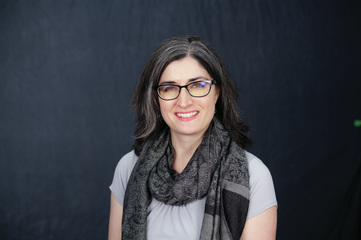
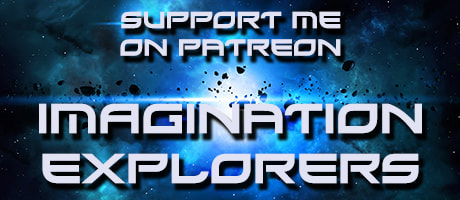
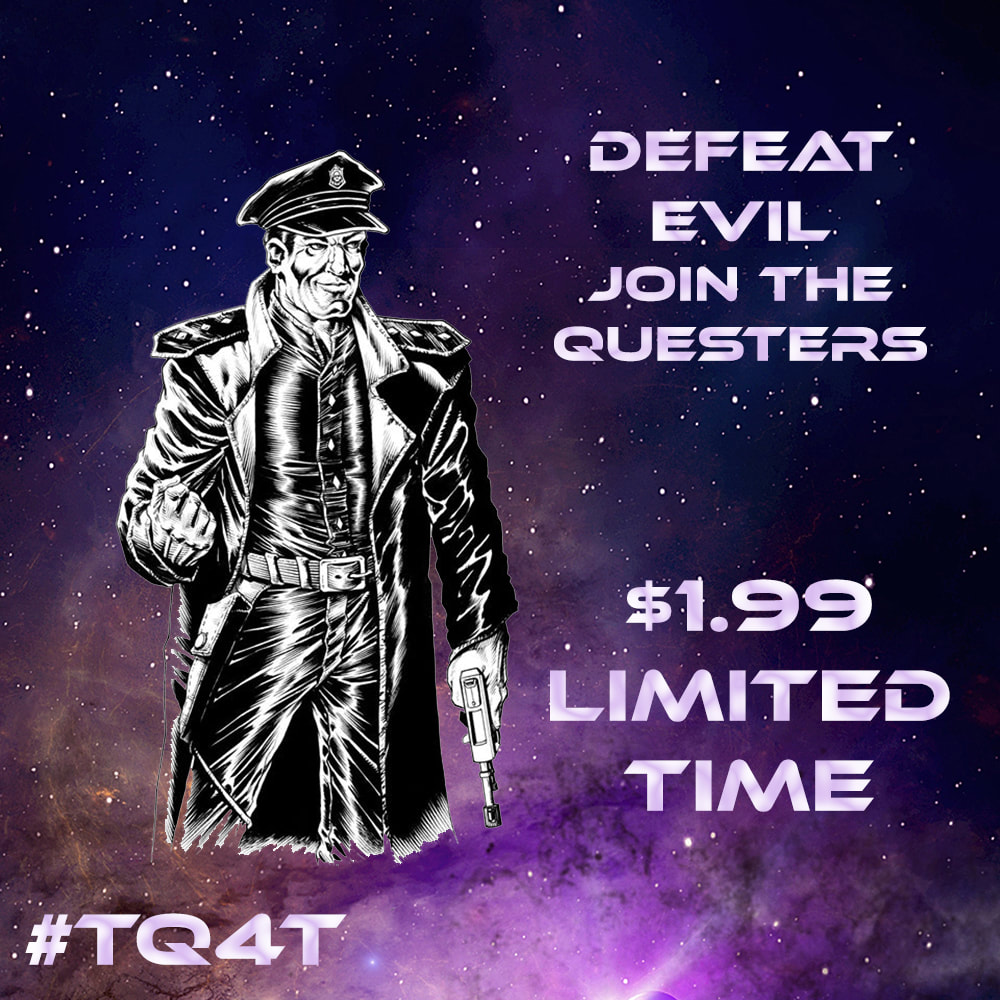
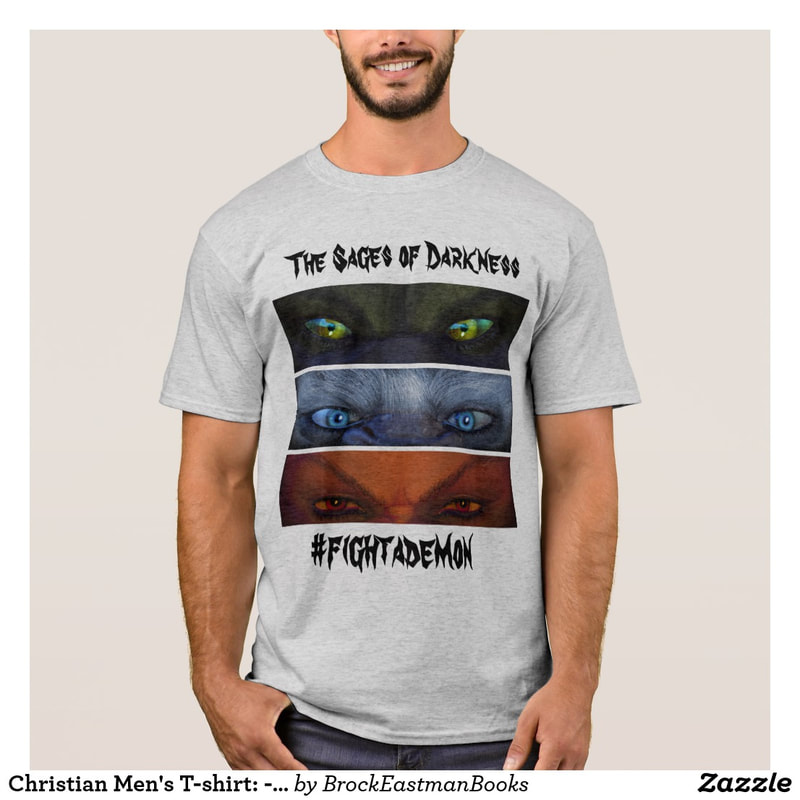

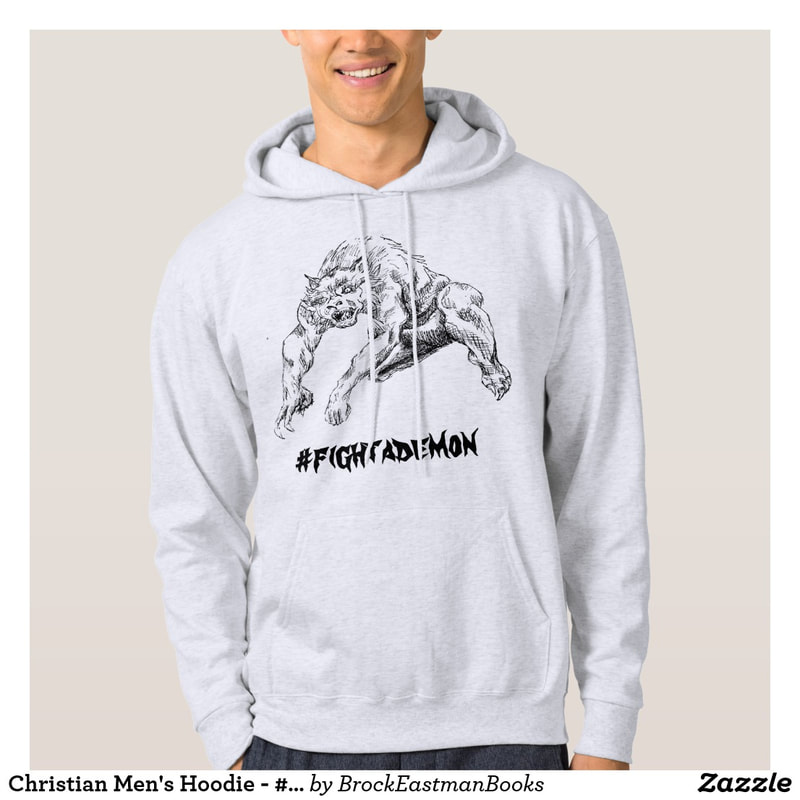

 RSS Feed
RSS Feed